The sixth leg of our 10-part trek through the major events shaping Thailand over the past 50 years starts out in 1992. The June issue covered 1987-1991.
| 1992 saw the creation of Queen Sirikit Park, a botanical garden in Chatuchak district of Bangkok, and Benchasiri Park on Sukhumvit Road, to commemorate the fifth cycle birthday anniversary Her Majesty Queen Sirikit. The Princess Maha Chakri Sirindhorn Anthropology Centre, an academic institution under the Ministry of Culture, and the Sirindhorn International Institute of Technology at Thammasat University’s PathumThani campus, were also established. The nowannual Prince Mahidol Award for outstanding global achievements in medicine and public health was handed out for the first time. The Mass Rapid Transit Authority (MRTA) was founded as a government agency under the Ministry of Transport, and Walailak University was established in Nakhon Si Thammarat province. |
| January • The government began collecting a seven percent value-added tax (VAT), replacing the business tax that had been levied for two decades. The government threatened manufacturers and distributors who attempted to take advantage of the VAT and immediately increase prices. Finance Minister Suthee Singhasaneh said that the Commerce Ministry was conducting a survey of the cost structures of consumer goods and its findings would be used to single out dishonest traders for legal action. Any mistakes in tax invoices, intentional or otherwise, carried punishments of up to seven years in jail and fines of up to 200,000 baht for business owners. Suthee assured the public that all confusion over the VAT would pass within a few months. • After six years as governor of Bangkok, Palang Dharma Party (PDP) leader Chamlong Srimuang stepped down in order to run in the national election on March 22. Chamlong stated that he was ready to take up the position of prime minister if it was the wish of the people and nominated his deputy, Krisda Arungwongse Na Ayuthaya, as PDP candidate to stand in the gubernatorial election. During his time as governor Chamlong reopened bidding for several city projects and allegedly saved the city 80 million baht. He also successfully encouraged the city’s technically illegal roadside hawkers to stop selling goods on Wednesdays so that streets and pavements could be cleaned. Chamlong’s administration also inked the initial agreement with the Thanayong Group, which undertook the construction of an elevated mass transit rail system through Bangkok’s business centre. |
• Laotian President Kaysone Phomvihane arrived for a 10-day state visit accompanied by his
foreign minister, deputy and military officers. His Majesty King Bhumibol Adulyadej said during a reception for Kaysone that his visit would lead to ‘a most positive result in the promotion of cordial friendship and good understanding between our two countries and their peoples so that they will prosper and flourish ever onwards’. Kaysone stayed four days in Bangkok before leaving for Chiang Mai, Phuket and eastern seaboard provinces. His trip was the first official visit by a Laotian leader to Thailand since the two countries signed a peace accord in 1979.
• Bangkok motorists were slow to embrace the concept of bus lanes during the frst day of enforcement. Some motorists either accidentally or intentionally violated the new law on the four major thoroughfares of Phahon Yothin, Phetkasem, Sukhumvit and Suk Sawat. The police claimed that nevertheless the new bus lines had proven immediately effective as judged by improved traffic flow. Bus lane violators escaped with only a warning from police on the first day of implementation.
foreign minister, deputy and military officers. His Majesty King Bhumibol Adulyadej said during a reception for Kaysone that his visit would lead to ‘a most positive result in the promotion of cordial friendship and good understanding between our two countries and their peoples so that they will prosper and flourish ever onwards’. Kaysone stayed four days in Bangkok before leaving for Chiang Mai, Phuket and eastern seaboard provinces. His trip was the first official visit by a Laotian leader to Thailand since the two countries signed a peace accord in 1979.
• Bangkok motorists were slow to embrace the concept of bus lanes during the frst day of enforcement. Some motorists either accidentally or intentionally violated the new law on the four major thoroughfares of Phahon Yothin, Phetkasem, Sukhumvit and Suk Sawat. The police claimed that nevertheless the new bus lines had proven immediately effective as judged by improved traffic flow. Bus lane violators escaped with only a warning from police on the first day of implementation.
| March • High-ranking police officers defended the practice of killing hardened criminals ‘under permissible circumstances’, saying that if carefully applied this extreme approach would help to reduce serious crime. There had been growing concern in some quarters that some killings described by the authorities as acts of self-defence were in fact extrajudicial police actions to eliminate professional criminals instead of bringing them to trial. In 1991 a total of 22 criminal suspects were killed under so-called permissible circumstances by the police in Bangkok, and allegedly there were more than 80 such incidents throughout the country. |
• General elections were held on March 22, the first since the National Peace Keeping Council overthrew the elected government of Chatichai Choonhawan in February 1991. A total of 15 parties participated, contesting 360
seats in the House of Representatives. The Justice Unity Party came out on top with 79 seats, followed by the Nation Party with 74 seats and the New Aspiration Party with 72 seats. A total of 19,216,466 voters cast their ballots, representing 59.2% of eligible voters.
• Democrat Party candidate Abhisit Vejjajiva, 28, became the country’s youngest ever MP after winning a Bangkok constituency seat in the general election. The British-born, Eton- and Oxford-educated Abhisit won constituency 6, made up of Sathon, Yannawa and Bang Kho Laem districts of Bangkok.
April
• PDP candidate Krisda Arunwongse Na Ayuthaya became Bangkok governor in an election in which only 23% of eligible voters cast ballots. Krisda thanked city residents for their support and pledged to carry on development projects initiated by the previous administration. He said the slum problem, community health and education were his priorities as governor. He also pledged that his administration would continue with infrastructure projects aimed at solving Bangkok’s traffic gridlock.
• After the failure of any party to win a working majority in the March general elections, an alliance of five pro-military parties appointed Supreme Commander General Suchinda Kraprayoon, leader of the 1991 military coup, to become prime minister. This was met with great opposition from students and political parties outside the military alliance. When Parliament convened on April 19, all members of the opposition dressed in funeral attire and wore black armbands.
May
• On the fourth day of the month now known as ‘Black May’ more than 60,000 people joined with opposition party members in a protest against Suchinda’s undemocratic rise to power. PDP leader Chamlong initiated a hunger strike ‘to the death’ to press the resignation of the PM. It was estimated that 200,000 people gathered at several sites at the height of the protest. In the following days chaos reigned on Bangkok streets as protesters and soldiers engaged in turf battles. A number of buildings were torched, including the Public Relations Department, and hundreds of protesters were arrested, including Chamlong. In all the violence resulted in 39 reported deaths and hundreds of injuries. Around 3,500 people were arrested. Most of the casualties were at the main protest sites near the Royal Hotel, Sanam Luang and Democracy Monument. Around 100 injured protesters were carried into the Royal Hotel where doctors converted the reception area and other corners of the hotel into temporary surgeries. On May 20, the King summoned Suchinda and Chamlong to Chitralada Palace and ordered them to end the clashes and find a compromise. Five days later Suchinda resigned and Deputy Prime Minister Meechai Ruchupan became acting prime minister. He was replaced on May 24 by Anand Panyarachun. Jailed protesters were released and the government passed an amendment to the constitution requiring the prime minister to be an elected official
• The 41st Miss Universe pageant was held on May 8 at the Queen Sirikit National Convention Center in Bangkok. Out of 78 contestants, Michelle McLean of Namibia was crowned Miss Universe. She was the first and so far the only Namibian woman to win the title.
seats in the House of Representatives. The Justice Unity Party came out on top with 79 seats, followed by the Nation Party with 74 seats and the New Aspiration Party with 72 seats. A total of 19,216,466 voters cast their ballots, representing 59.2% of eligible voters.
• Democrat Party candidate Abhisit Vejjajiva, 28, became the country’s youngest ever MP after winning a Bangkok constituency seat in the general election. The British-born, Eton- and Oxford-educated Abhisit won constituency 6, made up of Sathon, Yannawa and Bang Kho Laem districts of Bangkok.
April
• PDP candidate Krisda Arunwongse Na Ayuthaya became Bangkok governor in an election in which only 23% of eligible voters cast ballots. Krisda thanked city residents for their support and pledged to carry on development projects initiated by the previous administration. He said the slum problem, community health and education were his priorities as governor. He also pledged that his administration would continue with infrastructure projects aimed at solving Bangkok’s traffic gridlock.
• After the failure of any party to win a working majority in the March general elections, an alliance of five pro-military parties appointed Supreme Commander General Suchinda Kraprayoon, leader of the 1991 military coup, to become prime minister. This was met with great opposition from students and political parties outside the military alliance. When Parliament convened on April 19, all members of the opposition dressed in funeral attire and wore black armbands.
May
• On the fourth day of the month now known as ‘Black May’ more than 60,000 people joined with opposition party members in a protest against Suchinda’s undemocratic rise to power. PDP leader Chamlong initiated a hunger strike ‘to the death’ to press the resignation of the PM. It was estimated that 200,000 people gathered at several sites at the height of the protest. In the following days chaos reigned on Bangkok streets as protesters and soldiers engaged in turf battles. A number of buildings were torched, including the Public Relations Department, and hundreds of protesters were arrested, including Chamlong. In all the violence resulted in 39 reported deaths and hundreds of injuries. Around 3,500 people were arrested. Most of the casualties were at the main protest sites near the Royal Hotel, Sanam Luang and Democracy Monument. Around 100 injured protesters were carried into the Royal Hotel where doctors converted the reception area and other corners of the hotel into temporary surgeries. On May 20, the King summoned Suchinda and Chamlong to Chitralada Palace and ordered them to end the clashes and find a compromise. Five days later Suchinda resigned and Deputy Prime Minister Meechai Ruchupan became acting prime minister. He was replaced on May 24 by Anand Panyarachun. Jailed protesters were released and the government passed an amendment to the constitution requiring the prime minister to be an elected official
• The 41st Miss Universe pageant was held on May 8 at the Queen Sirikit National Convention Center in Bangkok. Out of 78 contestants, Michelle McLean of Namibia was crowned Miss Universe. She was the first and so far the only Namibian woman to win the title.
| June • Pumpuang Duangjan, known as the queen of luk thung (Thai country music), died of complications resulting from the auto-immune disease lupus. Pumpuang was born into a poor rural family in the Northeast and raised in Suphan Buri. Hundreds of thousands of people attended the royally sponsored funeral as the whole nation mourned her death. August • PM Anand ordered the demotion of three military officers allegedly responsible for the brutal crackdown on the May pro-democracy protests. Among them was ACM Kaset Rojananin, who was relieved of his duties as supreme commander and air force chief. Kaset and the other two offcers claimed that Suchinda ordered the crackdown. September • On September 13 general elections were held in which a total of 12 parties participated. The Democrat Party won 79 of 360 seats in the House of Representatives; the Nation Party won 77 seats; and the National Development Party won 60 seats. A total of 19,622,332 people voted representing 61.6% of registered voters. The resounding victory of the Democrat Party catapulted party leader Chuan Leekpai into the role of prime minister. October • Interior Minister Chavalit Yongchaiyuth said he would revive the Green Northeast Project. The environmental project was initiated in the 1980s when General Chavalit was the army chief and cancelled when Suchinda commanded the army. Chavalit said project aimed at irrigating the Northeast was one of the best government projects ever. November • PM Chuan announced to 350 high ranking military and police officers and provincial governors gathered at Government House in Bangkok that he wanted to see an end to child prostitution and child labour. “If there’s child prostitution, governors should bring the matter to the attention of provincial police chiefs,” the PM said, adding: “Problems in our country will be less if the ones who have weapons and enforce the law are not the source of problems.” December • It was announced that exports had increased by almost 20% in 1992 in spite of domestic problems and instability. Early in the year the export growth was predicted to be only 2%, but at year’s end the figure was put at 18%. • Chusri Meesommon, one of the country’s old-time great female comedians, died after a show at the age of 63. She had been making audiences laugh since the 1950s. |
| 1993 witnessed the opening of Queen Sirikit Botanical Garden in Mae Rim district of Chiang Mai province. Asian University (formerly the University of Science and Technology), was founded in Chonburi. Central Group founded grocery and general merchandise retailer Big C. CentralPlaza Bang Na (also known as Central City Bang Na) was opened in Bang Na district of Bangkok, and CentralPlaza Ramindra was opened in Bang Khen district. Dusit Thani College, a private college specializing in hospitality management, was opened in Bangkok. The weekly Englishlanguage newspaper Phuket Gazette printed its first edition. January • Ending a long tradition of males-only provincial governors, the Ministry of Interior appointed Charatsri Teeparat governor of Nakhon Nayok province. The 53-yearold Charatsri was formerly director of the Town and Country Planning Office. |
| February • A group of Nobel Peace Prize laureates including the Dalai Lama and Archbishop Desmond Tutu launched an international campaign from Thailand for the release of Burmese opposition leader Aung San Suu Kyi. Herself a Nobel laureate, Aung San Suu Kyi was in her fourth year of house arrest. The group travelled to the Thai-Burmese border where they met with Burmese dissidents. • A new law went into effect requiring all motorcyclists and pillion riders to wear helmets carrying an official seal of approval issued by the Industry Ministry. Motorcyclists wearing unapproved crash helmets risked a 500 baht fine. The new law sparked protests from motorcyclists who had bought expensive imported helmets before the seal requirement went into effect. • The Thai army set up a committee to investigate the purchase of 106 US-made Stingray tanks. A total of 44 vehicles developed technical problems, cracks in their gun turrets and other defects. Defence Minister Vijit Sookmark pointed out that the Stingray was a prototype that had never been used in combat. Critics suggested that the purchase could have been based on commissions rather than security needs, noting that Thailand was the only country in the world to buy the Stingray tanks. • According to Mahidol University, 55 of the 2,087 people listed as missing after the May events were still unaccounted for. Their relatives called on the government to find and punish those responsible for their disappearance. Many people who were injured demanded compensation as well. |
| • Urgent measures were initiated to stop the illegal entry of Burmese, Chinese and hill tribe people, many of whom were believed to be migrating to join Thailand’s prostitution industry. National Security Council Deputy Secretary- General Khachadpai Buruspatana said Thailand had increased surveillance and interception units along the borders and imposed heavier penalties on illegal immigrants and those involved in bringing them into the country. Illegal immigrants reportedly numbered more than 100,000 at the time. April • The King inaugurated the new United Nations Conference Centre in Bangkok, expressing hope that it would be able to support the increasing roles and responsibilities of states in the Asia-Pacific region. At the opening United Nations’ Secretary General Boutros Boutros-Ghali called on Thailand to persuade the Khmer Rouge to join in an electoral process to put an end to violence in Cambodia. • The cabinet approved an Interior Ministry amendment bill giving women the right to 90 days maternity leave with full pay. May • After a week of protests by farmers over low paddy prices, the government agreed to buy second crop paddy at a higher rate. The farmers’ protests began in Kamphaeng Phet province and turned violent after police with batons charged hundreds of farmers armed with sticks, stones and Molotov cocktails. One farmer was killed and several policemen were reportedly injured. The protests later spread to Bangkok. August • ‘King of Pop’ Michael Jackson gave a concert to a packed National Stadium crowd in Bangkok as part of his ‘Dangerous Tour’. It was one of the most anticipated concerts in Thai history. Jackson postponed a second concert twice, citing dehydration. He was seen at various locations in the city, including Patpong, guarded by a large contingent of police and people in the entertainment industry. • Thirty-three schools were torched in Pattani, Yala and Narathiwat provinces on August 1. Two days later a 34th school was burned down. Interior Minister Chavalit said he believed the attacks were politically motivated rather than the work of a separatist movement. PM Chuan disagreed, however, dismissing speculation that the arsons stemmed from political squabbles. September • One of Thailand’s most revered spiritual fgures, Phra Buddhadasa Bhikkhu, 87, was cremated at Wat Suan Mok in Surat Thani province. Buddhasara was regarded as a modern reformer of Buddhism and was seen by his admirers as a shining light for practitioners of Buddhism in Thailand and abroad. |
November
• More than 700 delegates including ministers and senior officials from 127 countries met at the UN regional headquarters in Bangkok to map out efforts to tackle the depletion of the ozone layer, which was widely regarded as one of the most serious environmental threats to the planet.
December
• Manoon Roopkachorn, a former “Young Turk” coup plotter, was acquitted by the Criminal Court of conspiring to assassinate Queen Sirikit, former PM Prem Tinsulanond and former army chief General Arthit Kamlangek during the Queen’s Cup soccer match at National Stadium on October 20, 1982. The prosecutor accused Manoon of collaborating with former communists and academics.
• Thaicom 1 satellite was launched from French Guiana in South America. The launch was witnessed by Princess, who described the launch as ‘an event to be recorded in Thailand’s telecommunication history’. The satellite relayed television and radio broadcasts and facilitated satellite phone communications, data communications networks and video conferences.
• Sa Kaeo, Nong Bua Lamphu and Amnat Charoen became Thai provinces, bringing the total to 76.
• More than 700 delegates including ministers and senior officials from 127 countries met at the UN regional headquarters in Bangkok to map out efforts to tackle the depletion of the ozone layer, which was widely regarded as one of the most serious environmental threats to the planet.
December
• Manoon Roopkachorn, a former “Young Turk” coup plotter, was acquitted by the Criminal Court of conspiring to assassinate Queen Sirikit, former PM Prem Tinsulanond and former army chief General Arthit Kamlangek during the Queen’s Cup soccer match at National Stadium on October 20, 1982. The prosecutor accused Manoon of collaborating with former communists and academics.
• Thaicom 1 satellite was launched from French Guiana in South America. The launch was witnessed by Princess, who described the launch as ‘an event to be recorded in Thailand’s telecommunication history’. The satellite relayed television and radio broadcasts and facilitated satellite phone communications, data communications networks and video conferences.
• Sa Kaeo, Nong Bua Lamphu and Amnat Charoen became Thai provinces, bringing the total to 76.
| January • The police started enforcing the Automobile Accident Victims’ Protection Act by arresting motorists whose vehicles were not covered by third-party insurance. Motorists apprehended driving uninsured and without a green badge issued by an insurance company on the windscreen were liable to a fine of 10,000 to 50,000 baht. February • Czech President Václav Havel visited Thailand as a guest of the royal family. His was the first visit to Thailand by a leader of the Czech Republic. During his four-daylong stay Havel also met with PM Chuan. They discussed bilateral relations and political and economic cooperation. • Deputy Foreign Minister Surin Pitsuwan hailed US President Bill Clinton’s abolition of 30-year-old trade sanctions against Vietnam. A Foreign Ministry statement said the removal of the US embargo would not only improve the atmosphere between the US and Vietnam but also foster economic development in Vietnam and the Southeast Asian region as a whole. April • King Bhumibol, Queen Sirikit and Princess Sirindhorn joined Lao President Nouhak Phoumsavanh and other dignitaries to open the Friendship Bridge across the Mekong River between Thailand and Laos. The 1,170 metre structure was seen as a crucial step by those who dreamed of creating an influential economic community around the Mekong. June • The Interior Ministry agreed to allow entertainment venues to remain open until 3am. According to Deputy Interior Permanent Secretary Benchakul Makarathas, the decision was made because of increased demand for entertainment and recreation. The previous regulation obliged entertainment venues to close their doors at, although bars, night clubs and discotheques were permitted to remain open until 1am if the following day was a public holiday. |
• Legal experts agreed to push for amendment of all laws concerning abortion to bring them more closely in line with changing public attitudes. Deputy Public Health Minister Udomslip Srisaengnam said that at least 300,000 illegal abortions were carried out each year, terminating about 10% of pregnancies in Thailand. Officials at the Public Health Ministry conference disagreed with legalizing abortion but suggested the laws be amended to suit current social conditions.
July
• The government increased its control over the operations of non-] government organizations by requiring them to apply for permission to stage all planned activities 30 days in advance.
October
• Telecommunications tycoon Thaksin Shinawatra was tipped for the Foreign Ministry post. The move was prompted by a cabinet reshuffle and marked the first entry into politics for the chairman of Shinawatra Computer and Telecommunications
Group. PDP leader Chamlong was said to have personally made
overtures to Thaksin to take up the post because he believed his business experience would prove useful in administering foreign policy for the benefit of the economy and the poor.
• PM Chuan turned down US President Clinton’s request to allow stationing of US ships with military equipment in the Gulf of Thailand. The US wanted to pre-position weapons, military spare parts and heavy equipment for use in the event of a crisis. “I feel sorry we cannot accept the proposal, but Thailand will be glad to continue regional security cooperation,” said Chuan in a prepared statement.
December
• During his annual birthday address to the nation, the King expanded on an environmentally sustainable economic philosophy he called Trasadi Mai or ‘New Theory’. The King explained that the New Theory was a practical plan to develop a system of integrated, self-sufficient farms.
• Thai-American doctor Chatri Duangnet moved to Thailand from Philadelphia and started a motorcycle ambulance service. He explained that he got the idea for the service while wondering how emergency vehicles could cope with heavy traffic situations in Bangkok. The doctor persuaded Bangkok General Hospital to equip two motorcycles with life support equipment.
July
• The government increased its control over the operations of non-] government organizations by requiring them to apply for permission to stage all planned activities 30 days in advance.
October
• Telecommunications tycoon Thaksin Shinawatra was tipped for the Foreign Ministry post. The move was prompted by a cabinet reshuffle and marked the first entry into politics for the chairman of Shinawatra Computer and Telecommunications
Group. PDP leader Chamlong was said to have personally made
overtures to Thaksin to take up the post because he believed his business experience would prove useful in administering foreign policy for the benefit of the economy and the poor.
• PM Chuan turned down US President Clinton’s request to allow stationing of US ships with military equipment in the Gulf of Thailand. The US wanted to pre-position weapons, military spare parts and heavy equipment for use in the event of a crisis. “I feel sorry we cannot accept the proposal, but Thailand will be glad to continue regional security cooperation,” said Chuan in a prepared statement.
December
• During his annual birthday address to the nation, the King expanded on an environmentally sustainable economic philosophy he called Trasadi Mai or ‘New Theory’. The King explained that the New Theory was a practical plan to develop a system of integrated, self-sufficient farms.
• Thai-American doctor Chatri Duangnet moved to Thailand from Philadelphia and started a motorcycle ambulance service. He explained that he got the idea for the service while wondering how emergency vehicles could cope with heavy traffic situations in Bangkok. The doctor persuaded Bangkok General Hospital to equip two motorcycles with life support equipment.
1995 is the year CentralMarina (formerly Central Center Pattaya) opened in Pattaya and CentralPlaza Pinklao opened in Bangkok. Fashion Island shopping mall on Ramintra Road was also opened, as was Future Park on Viphavadi Rangsit Road in PathumThani. Orient Thai Airlines was founded and Stamford International University was established. Thai-Chinese International School was opened in Bang Phli Yai in Samut Prakan province. Tinsulanon Stadium, named after former Prime Minister Prem Tinsulanonda, opened in Mueang Songkhla with capacity for 45,000 spectators. Fifteen-year old Tata Young became an instant sensation after her first album sold one million copies in five months.
January
• The name of a woman who donated 600 million baht to build Bangkok’s third Buddhist college was finally revealed. She was Namthong Khunvisal, a career teacher who
died in August 1994 at age 97 after accumulating a fortune through wise investments.
February
• The Thai government strongly defended the signing of a contract to secure natural gas through a pipeline from Myanmar for domestic electricity generation, saying it would not help to prop up the military regime in Yangon. PM Chuan said that Thailand’s energy security was a separate issue from the armed struggle of Burmese minority groups.
March
• Muslim community leaders said that some Thai students from the South who had studied in the Middle East and Pakistan were involved with domestic and international terrorist groups. The students, most of them over 20 years old, left Thailand secretly through southern border provinces to obtain passports and scholarships to travel to Arab countries and Pakistan. An official from the office of the Chula Ratchamontri, spiritual leader of Thai Muslims, refused to comment on the report but said more than 1,500 Thais were believed to be studying in Islamic countries.
• The name of a woman who donated 600 million baht to build Bangkok’s third Buddhist college was finally revealed. She was Namthong Khunvisal, a career teacher who
died in August 1994 at age 97 after accumulating a fortune through wise investments.
February
• The Thai government strongly defended the signing of a contract to secure natural gas through a pipeline from Myanmar for domestic electricity generation, saying it would not help to prop up the military regime in Yangon. PM Chuan said that Thailand’s energy security was a separate issue from the armed struggle of Burmese minority groups.
March
• Muslim community leaders said that some Thai students from the South who had studied in the Middle East and Pakistan were involved with domestic and international terrorist groups. The students, most of them over 20 years old, left Thailand secretly through southern border provinces to obtain passports and scholarships to travel to Arab countries and Pakistan. An official from the office of the Chula Ratchamontri, spiritual leader of Thai Muslims, refused to comment on the report but said more than 1,500 Thais were believed to be studying in Islamic countries.
| May • Rising star Thaksin made a profit of around a billion baht from the sale of two million shares of his telecommunications company. Thaksin informed the Stock Exchange of Thailand of the deal which according to Korn Chatikavanij, president of Jardine Fleming Thanakon Securities, was designed to enable him to pursue a political career. June • Princess Mother Sri Nagarindra passed away peacefully at Siriraj Hospital where she had been since June 3. She was 94 years old. The King, the Queen and other members of the royal family were present at the hospital when she died. |
July
• Chart Thai Party leader Banharn Silpa-archa became the 21st prime minister of Thailand on July 13 after Chuan was forced to call for new elections following the collapse of his Democrat-led coalition government on May 20. He stood to lose a no-confidence vote when Deputy Prime Minister and PDP head Chamlong announced his party would withdraw from the coalition amid a land-reform scandal implicating Democrat MPs. Elections were held on July 2 with 391 seats up for grabs in the House of Representatives. In all 12 parties participated. Thai National Party won 92 seats, followed by the Democrat and Aspiration parties, which took 86 and 57 seats respectively. A total of 23,462,746 people voted representing 62% of registered voters. Vote buying was said to reach new heights.
August
• The Public Health Ministry approved testing of a Thai-developed HIV vaccine called Immunogen made from HIV virus fragments. Participants in the trials were HI infected Thais.
September
• The cabinet decided that MRTA’s 21kilometers electric train project connecting Bang Sue to Hua Lampong should be completely underground. The decision increased the estimated cost of civil works for the project from 40 billion to 60 billion baht.
• The World Muay Thai Council was formally inaugurated at a Bangkok conference attended by 78 member countries. The council was formed after the cabinet agreed in May to protect Muay Thai as a part of the Thai national heritage and attempt to regulate the sport which was enjoying increasing international popularity.
October
• Food vendors were required to meet new hygiene standards announced by the Public Health Ministry. A survey carried out in Bangkok on 9,000 vendors discovered that more than half of them sold food with above-limit levels of coliform bacteria, which is found in the fecal matter of warm-blooded animals. The survey also found that 45 percent of vendors had detectable amounts of the diarrhea-causing bacteria on their hands. Cockroaches, rats and grime were also common sights at Bangkok roadside food stalls.
• Chart Thai Party leader Banharn Silpa-archa became the 21st prime minister of Thailand on July 13 after Chuan was forced to call for new elections following the collapse of his Democrat-led coalition government on May 20. He stood to lose a no-confidence vote when Deputy Prime Minister and PDP head Chamlong announced his party would withdraw from the coalition amid a land-reform scandal implicating Democrat MPs. Elections were held on July 2 with 391 seats up for grabs in the House of Representatives. In all 12 parties participated. Thai National Party won 92 seats, followed by the Democrat and Aspiration parties, which took 86 and 57 seats respectively. A total of 23,462,746 people voted representing 62% of registered voters. Vote buying was said to reach new heights.
August
• The Public Health Ministry approved testing of a Thai-developed HIV vaccine called Immunogen made from HIV virus fragments. Participants in the trials were HI infected Thais.
September
• The cabinet decided that MRTA’s 21kilometers electric train project connecting Bang Sue to Hua Lampong should be completely underground. The decision increased the estimated cost of civil works for the project from 40 billion to 60 billion baht.
• The World Muay Thai Council was formally inaugurated at a Bangkok conference attended by 78 member countries. The council was formed after the cabinet agreed in May to protect Muay Thai as a part of the Thai national heritage and attempt to regulate the sport which was enjoying increasing international popularity.
October
• Food vendors were required to meet new hygiene standards announced by the Public Health Ministry. A survey carried out in Bangkok on 9,000 vendors discovered that more than half of them sold food with above-limit levels of coliform bacteria, which is found in the fecal matter of warm-blooded animals. The survey also found that 45 percent of vendors had detectable amounts of the diarrhea-causing bacteria on their hands. Cockroaches, rats and grime were also common sights at Bangkok roadside food stalls.
| December • The Southeast Asian NuclearWeapon-Free Zone Treaty (SEANWFZ), also called the Bangkok Treaty) formalised a moratorium on the development of nuclear weapons among the 10 ASEAN member-states. The proceedings opened in Bangkok on December 15 and prohibited signatories from the development, manufacture, acquisition, possession or any control over nuclear weapons. The treaty, which went into force in 1997, includes a protocol under which the five nuclear-weapon states recognized by the Treaty on the Non-Proliferation of Nuclear Weapons, namely China, the US, France, Russia and UK agreed to respect the Treaty and do not contribute to a violation of it by State parties. None of the nuclear-weapon states have signed this protocol. • Chiang Mai hosted the 18th Southeast Asian Games. It was the first time the multi-sport event was hosted by a city that is not a national capital. |
1996 is the year the British International School was established in Phuket. Thai music television Channel V was launched. The 59-storey Jewelry Trade Center on Silom Road in Bangkok was completed. Major Cineplex Group Public Company Limited, the largest operator of movie theatres in Thailand, was founded. Thai League 1, known as T1, was founded as a professional league for Football Thai Association clubs. Ubonrak Thonburi Hospital in Ubon Ratchathani province began offering medical care to residents of Ubon Ratchathani and surrounding Thai provinces as well as Laotian and Cambodian patients.
| March • The Thai government hosted the first Asia-Europe Meeting (ASEM) bringing together for the first time leaders of the 15 European Union countries and 10 ASEAN nations. The summit focused mainly on economic cooperation but also considered issues such as nuclear disarmament and human rights abuses in East Timor. • A new book by the King was launched as a part of the 50th anniversary celebration of his accession to the throne. Titled Mahajanaka, the book is based on a story from Phra Traipidok (the Buddhist Tree Cannons), with the main theme being the virtue of perseverance. It was the King’s third book, following his translations of A Man Called Intrepid (1993) and Tito (1994). • The Bangkok Post announced that an electronic version of its daily news edition would be available online. • Protests that included farmers’ groups, students and industrial workers put increased pressure on the government by vowing to support one another in pushing to solve their problems. The protesters set up a commune dubbed ‘Village of the Poor’ in front of Government House and pledged not to return home until they had secured a commitment from the government to address their problems. They demanded attention to land issues, compensation to villagers affected by the construction of dams, labour conditions and toxic waste. |
| • Thousands upon thousands of people from all walks of life, many wearing mourning colours gathered at Sanam Luang on March 10 to pay last tribute to the Princess Mother. About 1.4 million people presented sandalwood flowers at the crematorium site and in 38 temples throughout Bangkok. Apart from the funeral procession, Bangkok streets were almost deserted. May • The Finance Ministry took over the Bangkok Bank of Commerce to save it from collapse. The ministry took the action after a large volume of withdrawals by depositors. The drastic action was not unprecedented; in August 1984 the Finance Ministry took control of Asia Trust Bank. |
June
• Millions of people around the country joined in a candle-light ceremony to honour the 50th anniversary of King Bhumibol’s accession to the throne. Sanam Luang was completely full of people, many of whom had travelled from the provinces to witness the event. The King presided over the morning ceremony at the Golden Jubilee Pavilion on June 6. On June 5 the King became the world’s first recipient of the international Rice Award in recognition of his efforts to improve agricultural methods and quality of life for farmers in Thailand.
• Thai and French researchers reported the discovery of the grandfather of all tyrannosaurs in Khon Kaen province. The meat-eating dinosaur named Siamotyrannus isanensis predated by 20 million years the previously oldest known tyrannosaur.
• The government agreed to officially recognise some 700,000 illegal immigrant workers in 39 provinces in order to ease Thailand’s worsening labor shortage. The cabinet decided that aliens would be allowed legal employment for a perio of up to two years while awaiting deportation. According to employer associations, the country was short about 1.36 million workers.
• Former science and technology minister Bhichit Rattakul was elected governor of Bangkok.
July
• The government was warned by a panel of economists and academics that the Thai economy would face collapse if Banharn’s government continued administering the country. They criticized the government’s economic management on a number of fronts. One critic said the government ‘simply manages the economy on a day-to-day basis’.
• Manufacturers and advertisers of durian-flavoured condoms were fined after they ran an advertisement that appeared in newspapers. The Consumer Protection Committee ruled that the advertisement was guilty of ‘encouraging sexual misconduct in young people’.
• Millions of people around the country joined in a candle-light ceremony to honour the 50th anniversary of King Bhumibol’s accession to the throne. Sanam Luang was completely full of people, many of whom had travelled from the provinces to witness the event. The King presided over the morning ceremony at the Golden Jubilee Pavilion on June 6. On June 5 the King became the world’s first recipient of the international Rice Award in recognition of his efforts to improve agricultural methods and quality of life for farmers in Thailand.
• Thai and French researchers reported the discovery of the grandfather of all tyrannosaurs in Khon Kaen province. The meat-eating dinosaur named Siamotyrannus isanensis predated by 20 million years the previously oldest known tyrannosaur.
• The government agreed to officially recognise some 700,000 illegal immigrant workers in 39 provinces in order to ease Thailand’s worsening labor shortage. The cabinet decided that aliens would be allowed legal employment for a perio of up to two years while awaiting deportation. According to employer associations, the country was short about 1.36 million workers.
• Former science and technology minister Bhichit Rattakul was elected governor of Bangkok.
July
• The government was warned by a panel of economists and academics that the Thai economy would face collapse if Banharn’s government continued administering the country. They criticized the government’s economic management on a number of fronts. One critic said the government ‘simply manages the economy on a day-to-day basis’.
• Manufacturers and advertisers of durian-flavoured condoms were fined after they ran an advertisement that appeared in newspapers. The Consumer Protection Committee ruled that the advertisement was guilty of ‘encouraging sexual misconduct in young people’.
| October • During a five-day visit to Thailand, Queen Elizabeth II and Prince Philip viewed the Royal Barge Procession in Bangkok before travelling to Ayutthaya. Thousands of people lined the road along the way to get a glimpse of the royals. Accompanied by the King, the Queen and other members of the Thai royal family,the procession arrived at Siriyalai Mansion to view the Loy Krathong ceremony. From the mansion the royals proceeded to Wat Chaiwatthanaram to watch a light and sound presentation depicting the rise and fall of the Kingdom of Ayutthaya. • According to the health department, air pollution in and around Bangkok had reached critical levels, with dust particle content 50-100% above the safety standard. Urban hospitals were reportedly dealing with twice as many patients with respiratory and digestive complaints. Dr Prakrom Vuthipong, director-general of the health department, said an estimated one million people in the city were suffering from allergy problems caused by air pollution. November • A total of 13 parties fled candidates for general elections held on November 17. The New Aspiration Party won 125 of 393 seats in the House of Representative, followed by the Democrat Party with 123 seats. The National Development Party came in third with 52 seats. Voter turnout was 62.4% with 24,070,750 people casting their ballots. With support of fve coalition parties, New Aspiration Party founder and leader General Chavalit was appointed 22nd prime minister of Thailand by royal degree on November 25. |
• US President Bill Clinton arrived for a state visit and spent 27 hours in the kingdom amid tight security. The president was welcomed upon arrival at Don Muang by then Crown Prince Vajiralongkorn before being taken to meet the King and other members of the royal family as well as PM Banharn and other government officials.
• Protesting workers torched two Sanyo Universal Electric factory buildings on Sukhumvit Soi 102 when their end year bonuses were cut. Damage to the factory was estimated at 300 million baht. The Board of Investment ordered its Tokyo office to apologize to the Japanese parent company for the incident.
• Protesting workers torched two Sanyo Universal Electric factory buildings on Sukhumvit Soi 102 when their end year bonuses were cut. Damage to the factory was estimated at 300 million baht. The Board of Investment ordered its Tokyo office to apologize to the Japanese parent company for the incident.


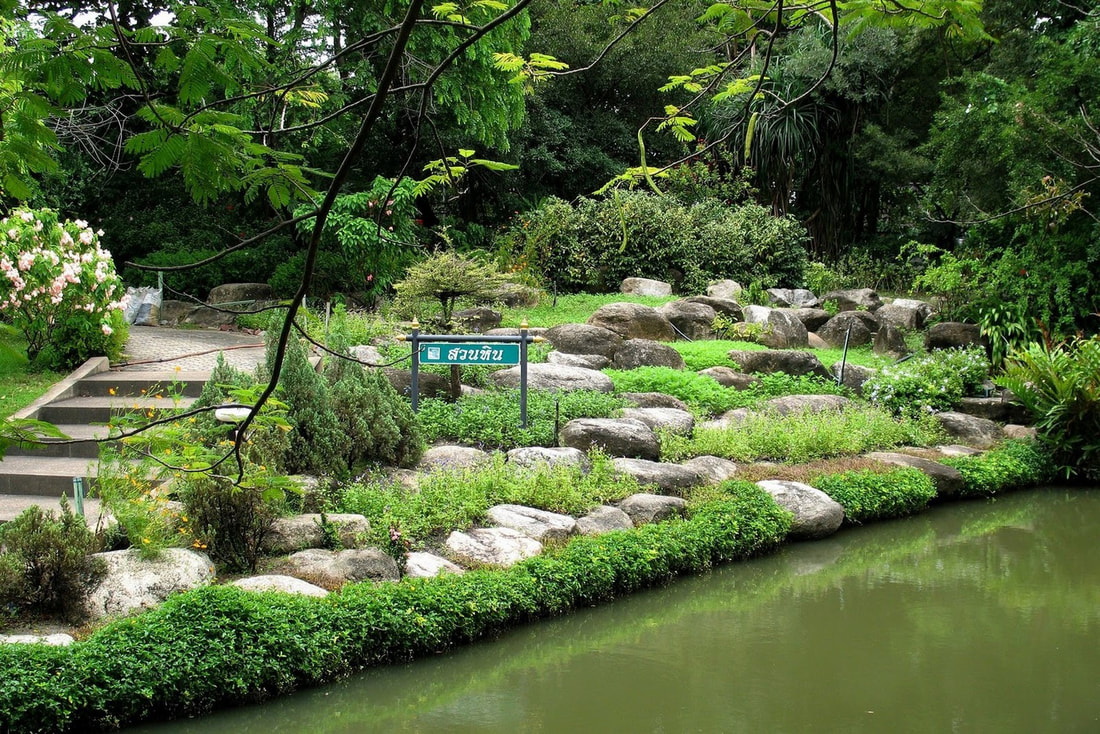
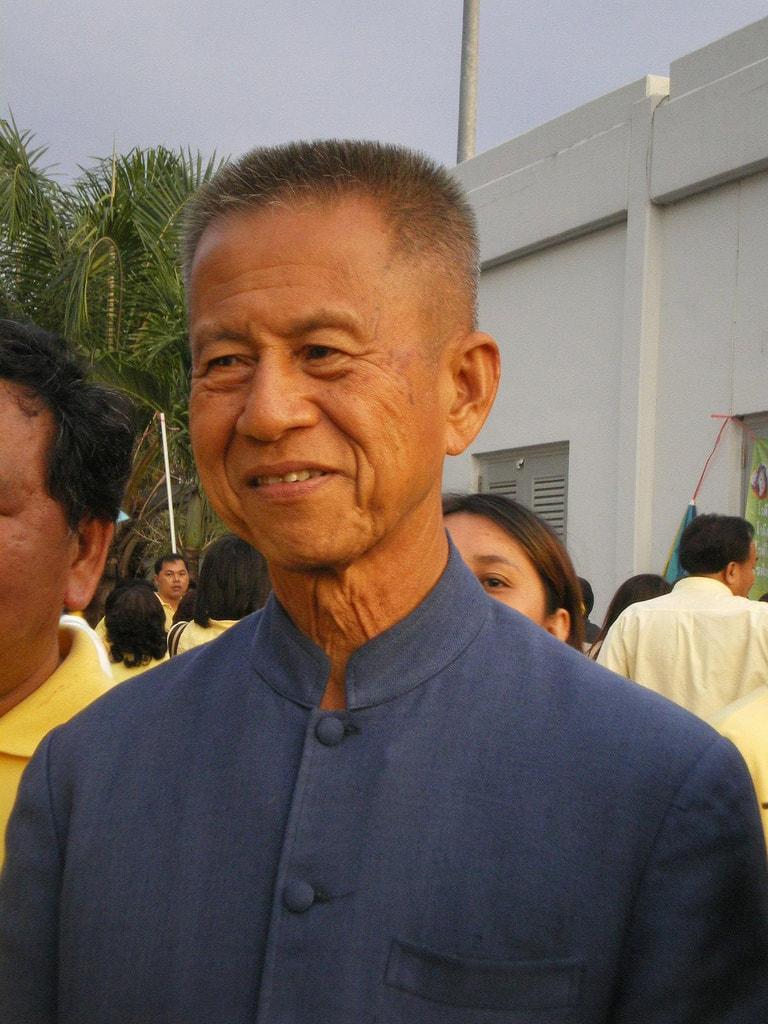
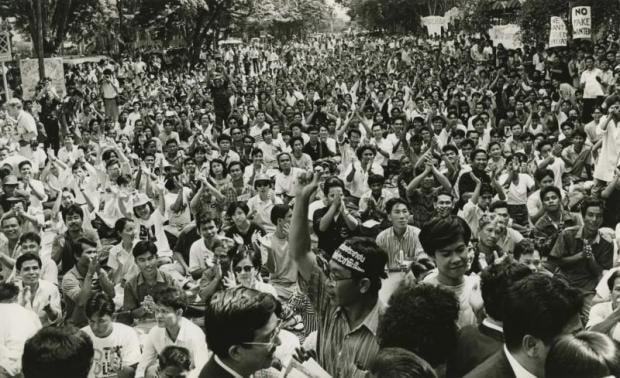
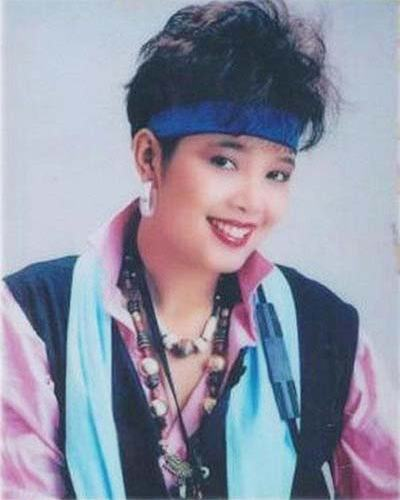
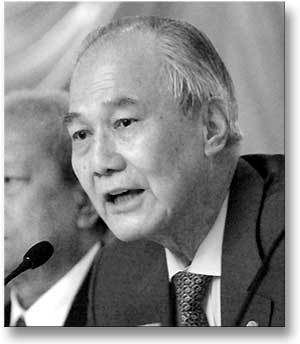
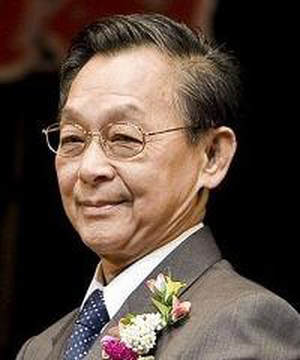

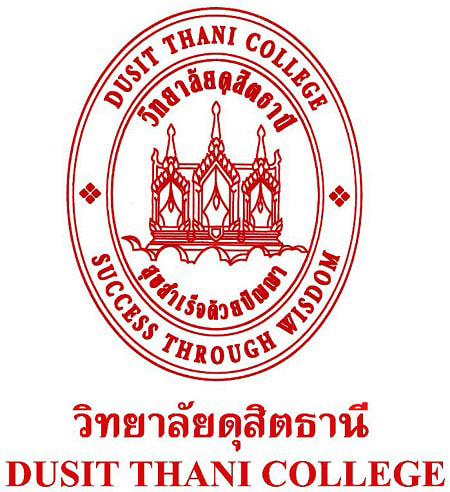
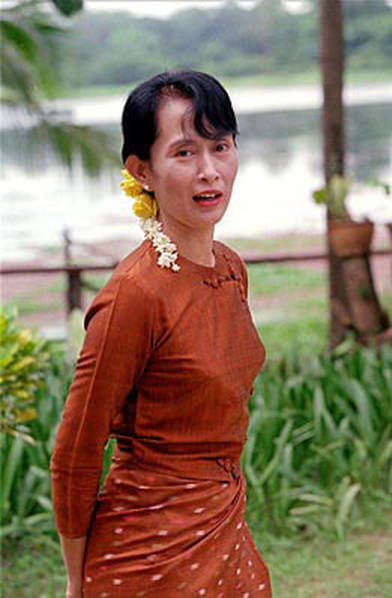
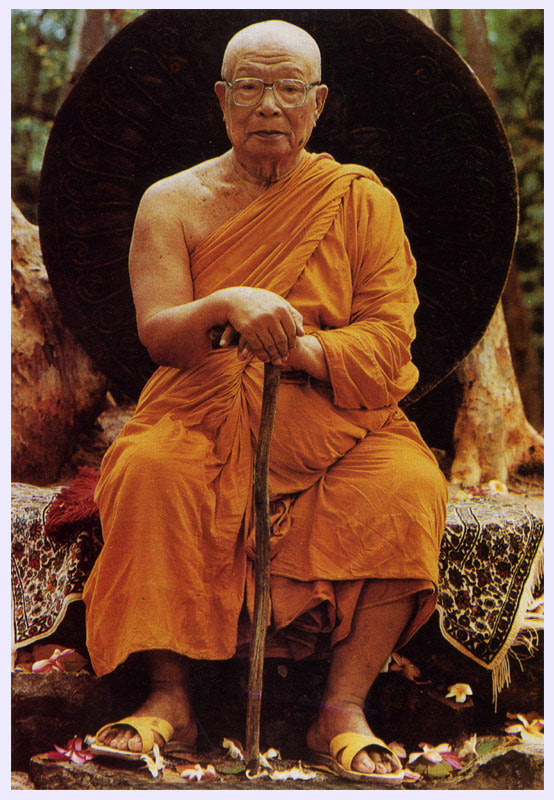
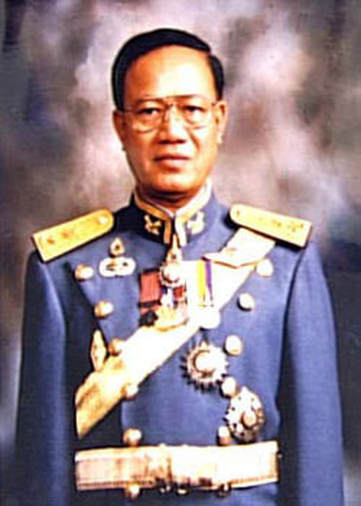

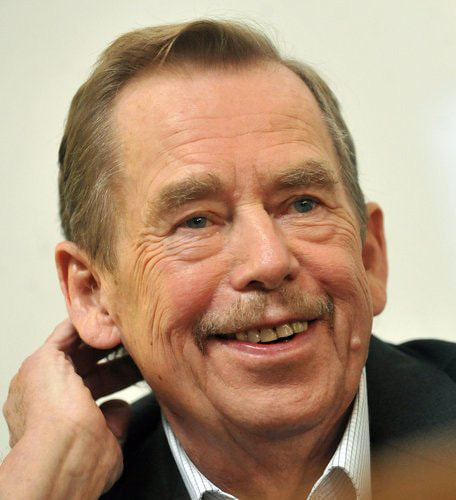
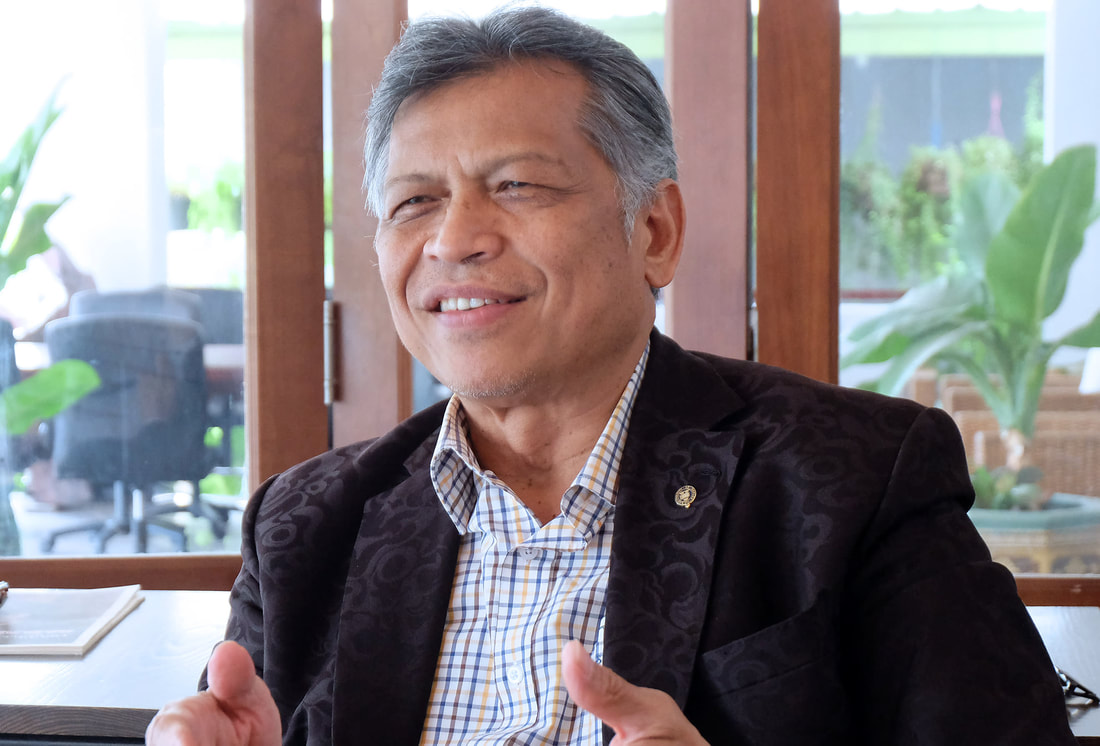
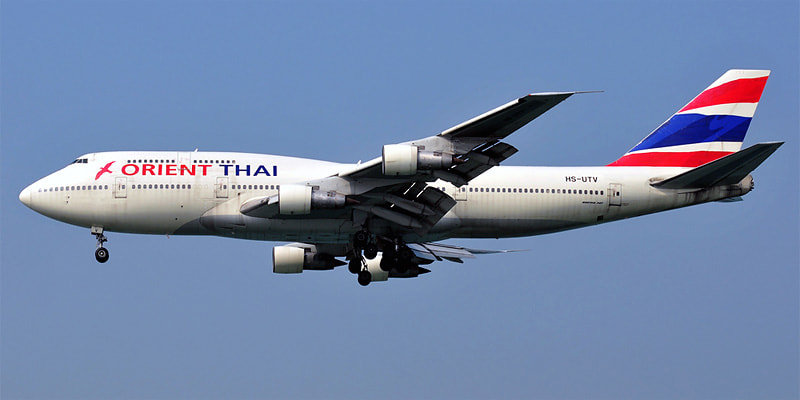
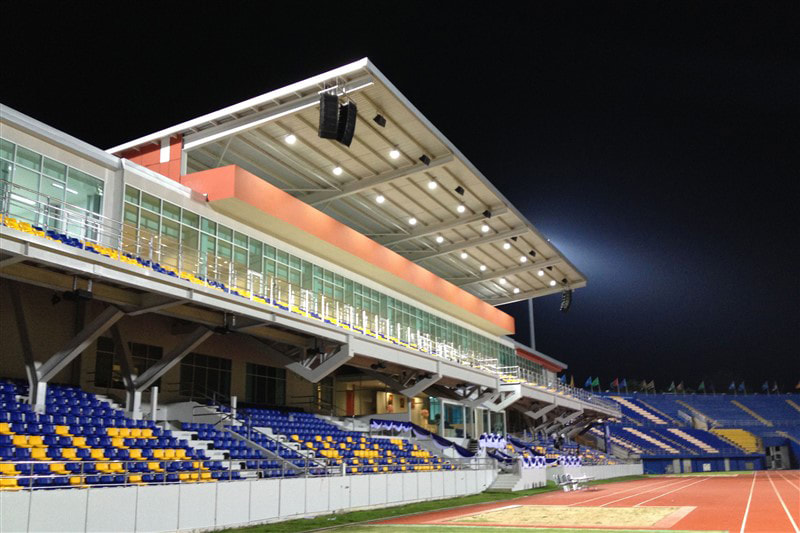
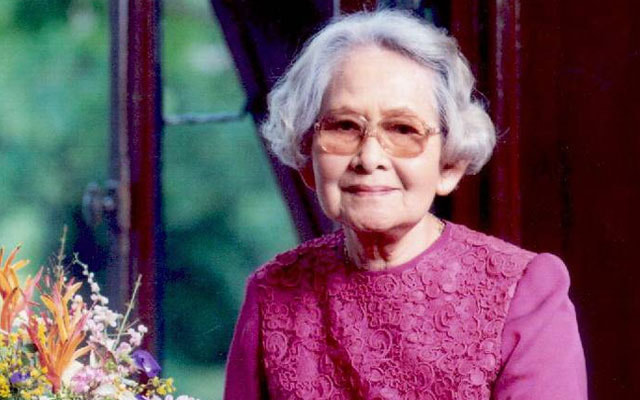
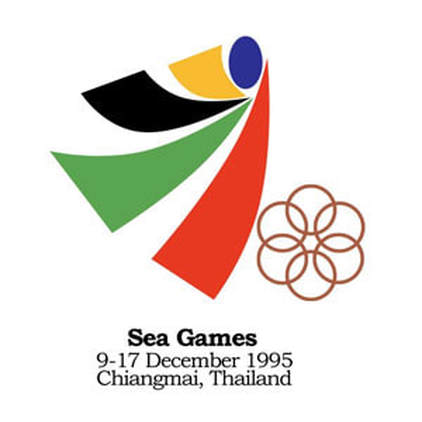
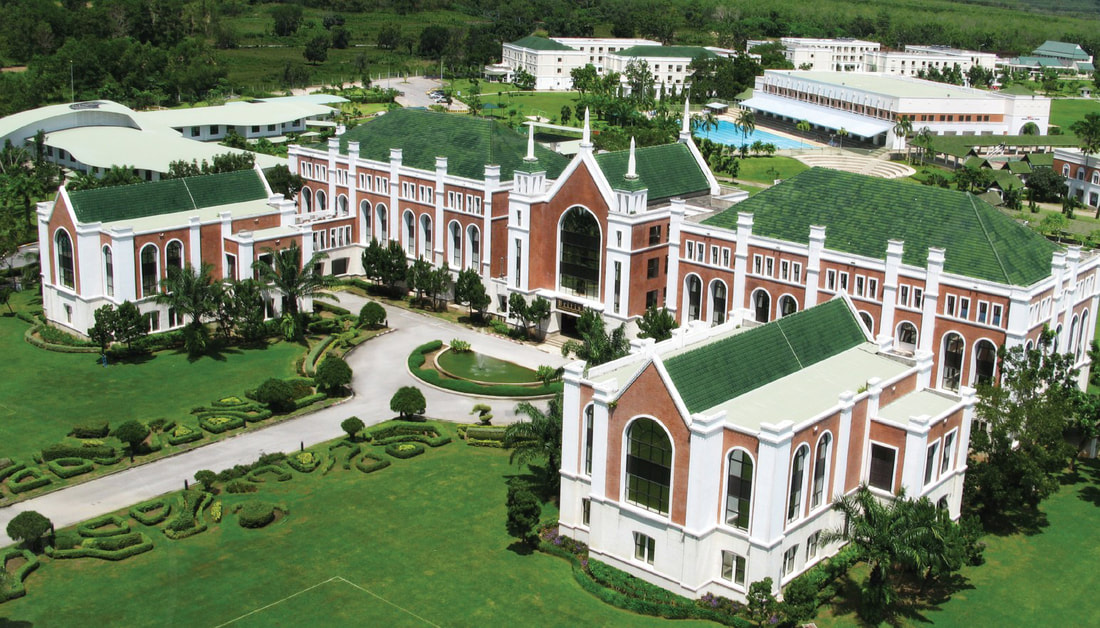
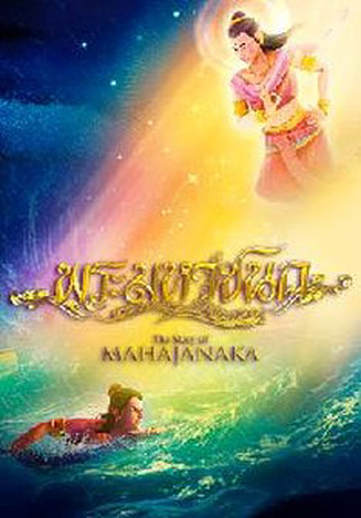
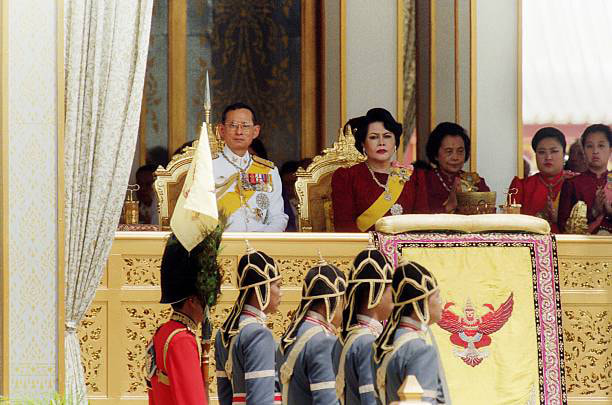
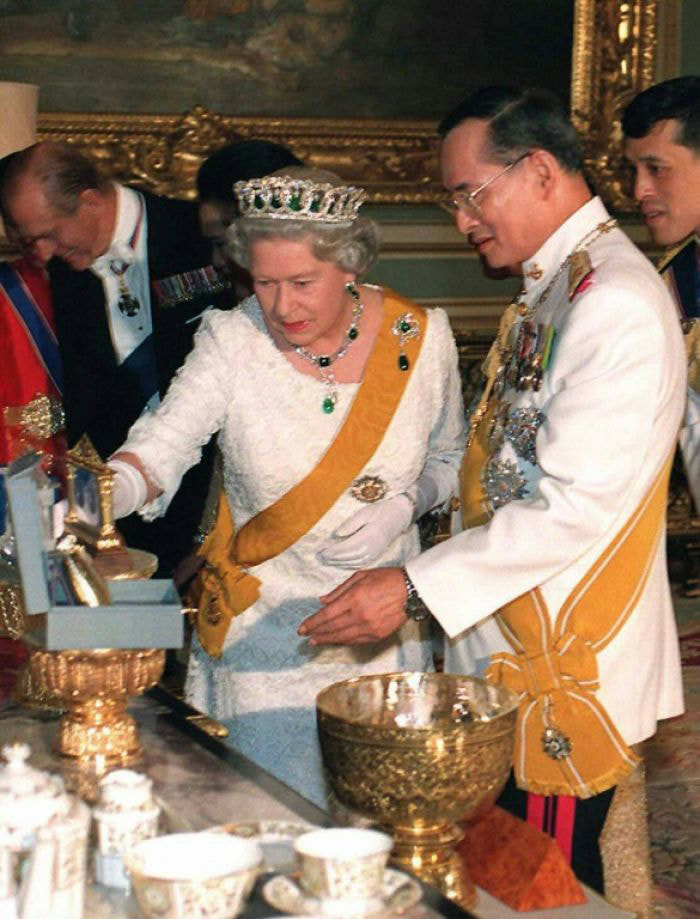
 RSS Feed
RSS Feed
















